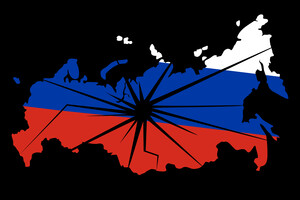The default of the Russian Federation may be announced in early May.

At the beginning of the month (April 4), the Russian Federation the payment on the two bonds is about $ 650 million, but in rubles, not dollars. The Credit Derivatives Committee has already said the ruble payment is a “potential default.” This was reported by the Russian media, which decided to explain to the public what to prepare for. what happens next; file a lawsuit against Russia in court; apply to arbitration in accordance with bilateral agreements that Russia has concluded with dozens of countries.
(May 25).
What will happen after the default?
If Russia declares a default, it will still be forced to decide something with its debt and negotiate with creditors. If he does not want to repay the debt and agree on refinancing, then he is waiting for the seizure of state assets, courts, restrictions on investment, etc.
Consequences of default for the population
- Minus – foreign investment. According to experts, investors will not look to Russia for a long time. In addition, part of the existing business will go bankrupt due to the outflow of investment, and this is rising unemployment.
- Federal budget revenues are formed from three sources: taxes; export earnings (oil, gas, etc.); issue of government bonds. If there is no government bond issue, and export earnings may be reduced, taxes will increase.
- The austerity regime will be included, and thus social benefits will be reduced. Or “turn on the typewriter” and start printing money (issue money). So the ruble will lose its purchasing power and will already soar, not rise in inflation.
- By default, everything is developing on a domino basis. Some factors trigger others, which in turn trigger others, while exacerbating those that arose earlier.
Read also: Arahami accused Georgia of aiding Russia in circumventing sanctions
< Recall that Russia's sovereign debt, issued in dollars and euros, is about $ 450 billion, and about half of this amount belongs to foreigners. But Western sanctions have blocked Russia's access to about $ 300 billion in foreign exchange reserves held by banks abroad. That is, to pay investors, Russia must use any hard currency it has at home or defaults on
Earlier it was reported that the probability of declaring Russia's default after April 4 has increased to the fact that it has practically happened , as the Russian Ministry of Finance has already announced an early redemption of foreign bonds loans in rubles instead of dollars.




